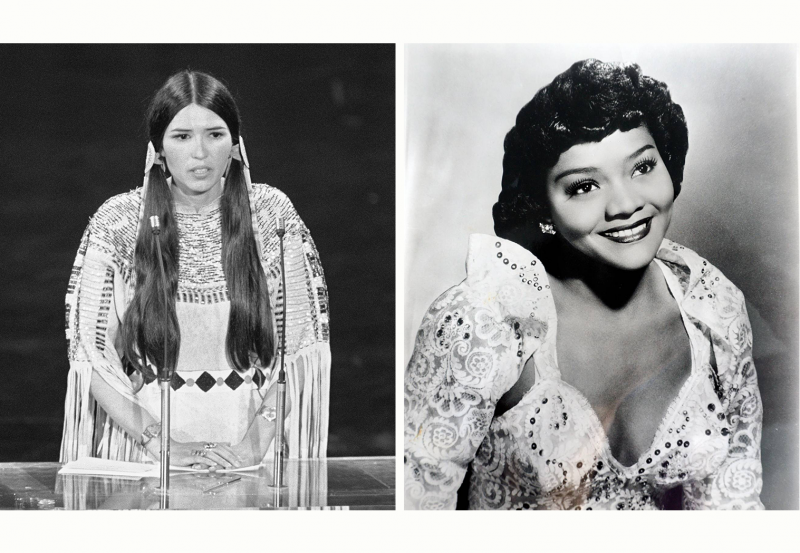Despite the damage caused by that night at the Oscars, Littlefeather’s work as an activist took off.
“The more that Native American Indian people like myself speak out, the more understanding that there becomes,” Littlefeather told KQED reporter Chloe Veltman two years ago from her home in Marin County. “The truth has got to win out above all the lies that have been told about us by the dominant society.”
The Academy Museum of Motion Picture will host a special event with Sacheen Littlefeather featuring a public apology and a celebration of Indigenous culture on September 17.
Also in June, the Walk of Fame Selection Panel of the Hollywood Chamber of Commerce announced that Juanita Moore, a revolutionary Black actor featured in bit parts, guest appearances and starring roles from the 1930s through the early 2000s, will be honored with a posthumous star on the Hollywood Walk of Fame.
Moore was a film, TV and stage actress who was born in Greenwood, Mississippi, and grew up in Los Angeles. Although she appeared in more than 80 films and TV shows, her name didn’t even appear in the credits for many of the movies she was in.
Her portrayal of Annie Johnson in the 1959 film “Imitation of Life” earned her an Oscar nomination for Best Supporting Actress, making her the fifth Black actor in moviemaking history to be nominated for an Academy Award. In the film, Annie is a mother whose light-skinned daughter, Sarah Jane, rejects her Black identity and tries to pass as white.
Following Juanita Moore’s death eight years ago, Moore’s nephew, Arnett Moore, began pushing for his aunt to be commemorated with a Hollywood star on the iconic Walk of Fame.
“She was a trailblazer. She opened doors and today, a lot of the actors of color are not having to deal with some of the things she dealt with,” Arnett Moore told The California Report Magazine last year.
Moore also was recently given a star on the The Mississippi Arts and Entertainment Experience (MAX) Walk of Fame in Meridian, Mississippi, which features performance artists born in that state.
Her star on the Hollywood Walk of Fame will be placed in October 2023.
